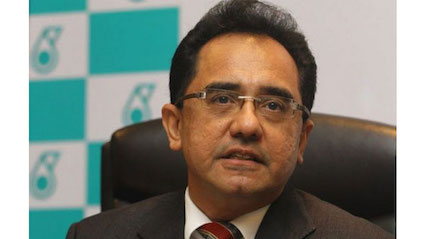Chief of Malaysia’s Petronas quit over payment to Sarawak, say sources

(Reuters) – The chief of Malaysian energy giant Petronas quit this month after disagreement with the prime minister over giving more oil money to one of the country’s states run by a government ally, sources close to the government and the company said.
Extra payments would hit Petronas and the national budget at a time the novel coronavirus has dampened oil prices but could also raise questions over the management of state finances as Malaysia seeks to rebuild its reputation after the international scandal over state fund 1MDB.
Petronas Chief Executive Tan Sri Wan Zulkiflee Wan Ariffin resigned after a disagreement with Prime Minister Tan Sri Muhyiddin Yassin over a plan to pay US$470 million (RM2 billion) in sales tax to Sarawak state, five sources close to the government and the company said.
Wholly state-owned Petronas is the South-east Asian country’s only Fortune 500 company. It is the world’s fourth-largest exporter of liquefied natural gas and had revenue of US$56 billion in 2019, but profit fell 68 per cent in the first quarter of 2020.
Petronas had been fighting Sarawak’s demand for the sales tax in court before the two parties announced a settlement last month — although Sarawak later said it would continue its legal action until an agreement is final.
“Wan Zul resigned because of principles, that he is not agreeable to the Sarawak deal,” said a source close to the government, referring to Wan Zulkiflee.
“The new government is open to giving more to the states that produce oil.”
Wan Zulkiflee declined to comment. The prime minister’s office and Petronas did not immediately respond to requests for comment.
Last week, the Bernama state news agency quoted a Sarawak official as saying Petronas had yet to pay the tax as the state had decided to continue with the court action.
Wan Zulkiflee had said in public that Sarawak had “no legal competence” to demand the sales tax and had also opposed demands from Sarawak and neighbouring Sabah states — both on Borneo island — for bigger royalty payments.
Muhyiddin took office after the resignation of 94-year-old Tun Dr Mahathir Mohamad, who opposed giving more oil revenue to the states that hold two-thirds of Malaysia’s oil and gas reserves.
‘Necessary evil’
The sources said Muhyiddin was in no position to decline requests from Sarawak because the state’s main party — Gabungan Parti Sarawak — has 18 out the 222 elected seats in parliament and is key to keeping him in power given his single-digit majority.
In addition to agreeing to the sales tax, Muhyiddin had shown that he was open to demands from Sarawak and Sabah for more royalty payments, the sources said.
Wan Zulkiflee had said that increasing royalties could make operating in Sabah and Sarawak unfeasible. By some estimates, quadrupling the royalties from the current five per cent would cost Petronas US$7 billion a year.
The sources did not say how much Muhyiddin would be willing to increase royalty payments or whether any figure had been discussed.
Muhyiddin is in a shaky political position three months after emerging as prime minister by forging an alliance with the former ruling party that was voted out in 2018 after the multi-billion dollar 1MDB scandal.
“Domestically, it’s a necessary evil to hold the government together,” said Adib Zalkapli, Malaysia director, BowerGroupAsia, referring to the payments.
“Internationally, there will be serious questions about the financial viability of offering greater concessions to the oil producing states.”
The opposition has called for a vote of no-confidence as it tries to build an alliance against Muhyiddin.
A minister in the Sarawak government said the state was “able to see light at the end of the tunnel” in its talks with the government on the energy demands, though nothing had been agreed.
“What is more important is that both parties are able to see eye to eye,” said the source.
The chief executive role at Petronas is a prime ministerial appointment. Its chief financial officer, Tengku Muhammad Taufik Tengku Aziz, is due to take over from July 1.

